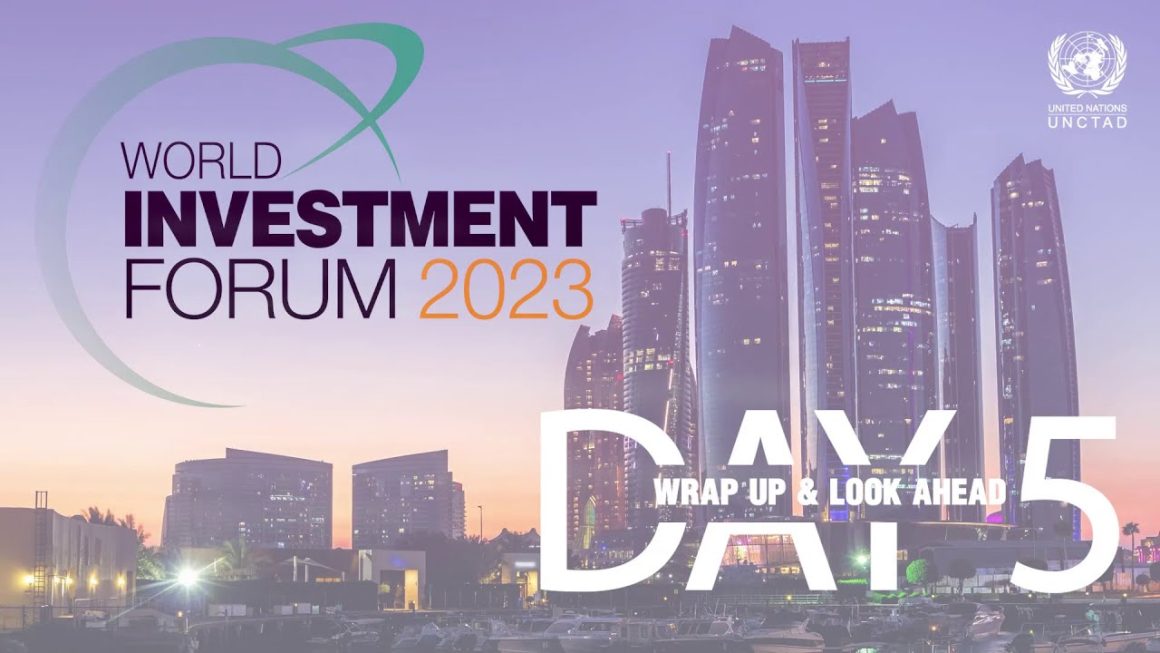UNCTAD’s 8th World Investment Forum concluded on 20th October in Abu Dhabi, emphasizing the crucial role that public and private investors must play in reshaping the global economy. The forum highlighted the emerging opportunities presented by the energy transition, transformation of the agrifood and health sectors, and the evolving solutions for sustainable development.
Over the course of a week, the event brought together 8,000 participants, including government officials, international organizations, policymakers, 700 CEOs and investors, sovereign wealth funds, sustainable stock exchanges, and key capital markets actors.
Taking place amidst a fragmented global economy, the forum addressed the significant impact on trade and investment. Foreign direct investment experienced a continued downturn, as data from the first half of 2023 revealed. This decline is a cause for concern, as reduced investment hampers economic growth and limits the means to achieve the Sustainable Development Goals (SDGs), according to UNCTAD Deputy Secretary-General Pedro Manuel Moreno.
The forum also highlighted the challenges faced by small island developing states, exemplified by the presence of Fiji’s Deputy Prime Minister Manoa Kamikamica. These states called for the utilization of blended financing and other “derisking” solutions to address funding shortages in countries grappling with debt distress, a challenging international investment climate, tightening financing conditions, and persistent institutional and infrastructure shortcomings.Foreign direct investment and COP28
In a bid to include the investment perspective in COP28 deliberations and finance a just transition, a call was made to bring investor conversations from the forum into discussions at the forthcoming climate summit, as countries prepare their new national climate action plans by 2025.
New investment policy instrument
The forum also unveiled a suite of new investment policy instruments, including the identification of 50 SDG model special economic zones, the launch of a multi-stakeholder platform on international investment agreements reform, and a collaboration with the UN World Tourism Organization to establish guiding principles for sustainable tourism investment.
Partnerships with UNCTAD to drive investment in developing countries
In addition, the forum saw the announcement of several strategic partnerships. These include collaborations with the African Sovereign Investors Forum, regional partnerships for sustainability reporting in Asia, the Gulf region and Eurasia, and an agreement between the stock exchanges of Malaysia, Indonesia and Thailand to launch a central sustainability platform for the Association of Southeast Asian Nations region.
To stimulate investment, the forum has introduced two new donor-funded technical assistance programs. The first program is a funding partnership with the German International Climate Initiative and GIZ, the German development agency. This partnership aims to support sustainability reporting and climate disclosure in developing countries.
The second program is a 2.8 million Euro partnership between Europe, the Organisation of African, Caribbean and Pacific States, and UNCTAD. Its objective is to enhance the capacity for investment facilitation in Angola, Gambia, Nigeria, Suriname, Vanuatu, Zimbabwe, and the wider African, Caribbean, and Pacific group of countries.
This partnership will offer crucial support through digital government tools, including information portals and single windows. These tools will streamline administrative procedures for investors and promote inclusive development. The project is scheduled to run from October 2023 to September 2025, demonstrating a commitment to advancing investment facilitation and contributing to the Sustainable Development Goals.
It is worth noting that the 9th World Investment Forum is scheduled to take place in 2025.
WAM

